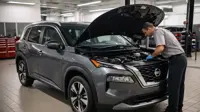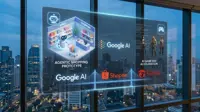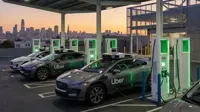Better management alone can cut energy use by 20%: Bosch chief
01 Mar 2014
Modern technology can help achieve more growth with lower energy consumption and there is significant potential for energy savings in industry.
 "The aim of energy efficiency must be pursued here and now with the policy instruments already available," Fehrenbach said while addressing the Sustainability Conference organised by the German weekly, Die ZEIT.
"The aim of energy efficiency must be pursued here and now with the policy instruments already available," Fehrenbach said while addressing the Sustainability Conference organised by the German weekly, Die ZEIT.
However, to reduce the energy consumption of large and complex facilities, systematic energy management is required, said Franz Fehrenbach, chairman of the Bosch supervisory board.
Fehrenbach bemoaned that commitment to energy efficiency had abated at all levels. The European Union, for instance, is not likely to meet its 2020 target of increasing energy efficiency by 20 per cent. In Germany, tax incentives for improving buildings' energy efficiency were ditched in the new government's coalition agreement.
According to Fehrenbach, there are many long-term goals for the move toward alternative forms of energy. However, ''if we keep waiting, we will not achieve any of them,'' he said. ''When it comes to alternative forms of energy, Germany must get moving once and for all.''
Fehrenbach warned that this move is at risk of turning into empty rhetoric. While the entire political spectrum is in favour of alternative forms of energy, energy prices continue to rise and the brown-coal economy, which is hardly eco-friendly, persists.
The fastest way to act, in Fehrenbach's view, is by improving energy efficiency; doing so does not even require a solution to the conflict on new power grids and the allocation of the cost of renewables. The modernisation of old heating systems would already enable significant energy savings. ''Houses,'' said Fehrenbach, ''are the number one consumers of energy.''
Bosch, he said, can offer the services needed for this, both in capital goods and commercial buildings. Improved energy management alone can reduce their energy consumption by an average of 20 per cent.
By 2020, Fehrenbach said, the Bosch board of management aims to reduce carbon dioxide emissions at its locations around the world by at least 20 per cent over 2007 levels. According to Fehrenbach, as early as 2012 the company has already achieved a relative reduction of 13 per cent. In absolute terms, the company's CO2 emissions have decreased five per cent within five years.
During this time, Bosch sales have increased 13 per cent, while the company's global energy needs have decreased by 7.7 per cent.
''Our engineers work hard for every percentage point of fuel and energy savings, for every gram of carbon dioxide that can be reduced,'' said Fehrenbach, who argued that protecting the environment calls for more and better technology. This is a central tenet of the way Bosch sees itself, he said: ''Especially because we don't want to compromise our standard of living, we strive to come up with eco-friendly innovations.''
The Bosch Group is a leading global supplier of technology and services with interests in the automotive, industrial, consumer goods, and energy and building technology comprising Robert Bosch GmbH and its more than 360 subsidiaries and regional companies in some 50 countries. It has sales and service partners in roughly 150 countries.
The group employs roughly 281,000 people worldwide and generated sales of €46.4 billion in 2013.



















